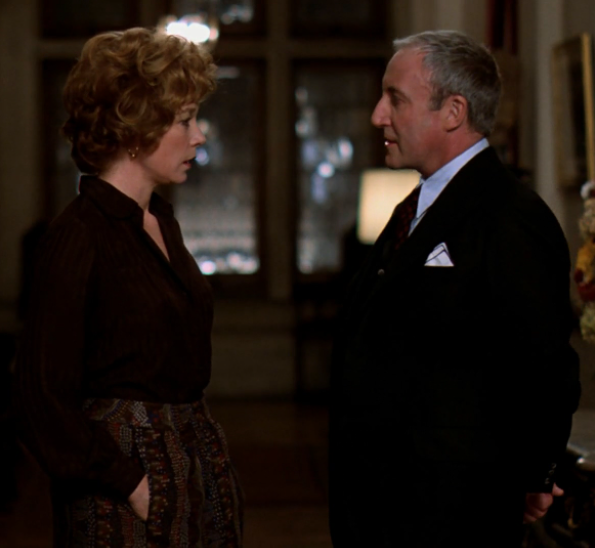‘Being There’ is the 1979 satire based on the book by Jerzy Kosiński, who himself used the idea from the 1932 book ‘The Career of Nicodemus Dyzma’ by Tadeusz Dołęga-Mostowicz.
Chance the gardener has spent all his life in an old man’s house in Washington, DC. He has never been outside the walls of the house and he gets all his knowledge about the world from tv. He watches tv all the time and uses his remote control to change the channels when he is bored or uncomfortable with something. Unfortunately, when the old man dies, he is forced to leave the house and to wander around the streets of the capitol city. He soon realizes that his remote control doesn’t work in real life.
By pure chance he is shortly lucky enough to find himself a new house, bigger and wealthier, where everybody seems to love him and his deep wisdom. However, he doesn’t really say or do much. He agrees with everybody and usually repeats whatever they say to him. He is just a mirror which reflects everything back to them. People just project things on him, and he is the perfect screen for that, by being just a white page, ‘tabula rasa’. By just being there… In the right place and at the right time.
Chance gives everybody in the house what they need – Ben Rand, the head of the house, finds a friend in him. Somebody who has a calming effect on him and helps him to accept his approaching end. And his wife Eve finds in him the reflection of all her desires. He actually helps her to discover herself and what she really wants and needs. He is just holding space for them and helps them to dive deep inside themselves. And there they find everything they ever needed.
He is like Mary Poppins who comes to take care of everybody and then leaves. He is an everyman, representing each and everyone of us. An Adam in the garden of Eden where he meets his Eve under the watching and approving eye of Ben. Or maybe he is the embodiment of the divinity himself? He can be both at the same time. We are divine and we already have everything we need inside ourselves. All we need to do is calm the mind, slow down and listen. Chance always takes his time before he says anything. His words are simple but they always have a deeper meaning and it’s up to people who listen to him to decide what that meaning is for themselves.
The film finishes with the quote ‘Life is a state of mind’ – these are the words of Ben Rand that we can also see on his grave in the shape of a pyramid with the eye on the top. Life is just like a tv program that we can change to another one when we switch it on our remote control.



